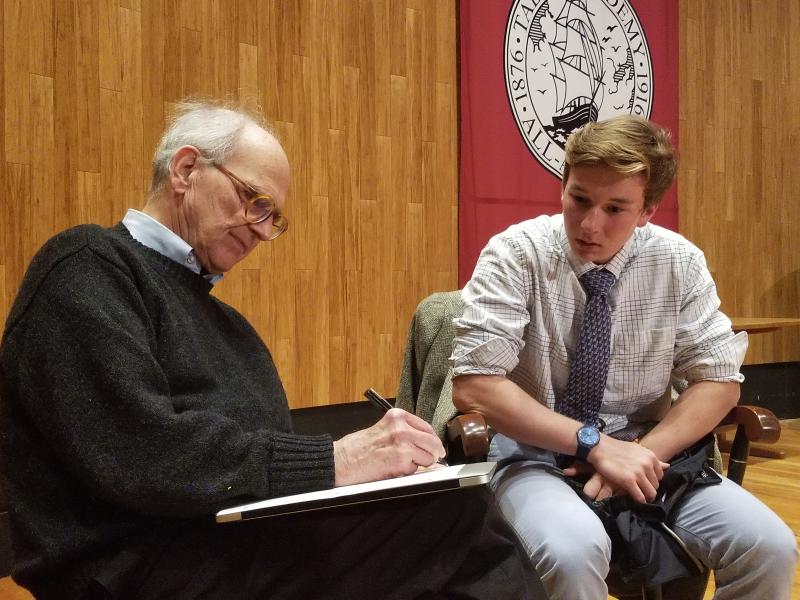Nobel Prize winner hosts lecture, discussion at Tabor Academy
Dr. Rainier Weiss, winner of the 2017 Nobel Prize in physics, shared his work on detecting gravitational waves with Tabor Academy students and faculty while visiting during the week of April 30.
"[Weiss] was kind and approachable, encouraged questions, and did his best to bring his heavenly topic down to earth," said Tabor's Director of Communications, Kerry Saltonstall.
As well known as he is for his leadership in groundbreaking discoveries about the universe, Weiss is also renowned for his love of speaking to students at the high school level. He was invited by Tabor’s Mathematics and Computer Science Department.
Jeanne Townsend, a staff member in Tabor’s IT Department and student of physics in college, summarized the hour-long discussion.
“While numbers, formulas, and scientific theories aren’t everyone’s cup of tea, evidently black holes are. Anything involving black holes gets the public’s attention. As Dr. Weiss explained, pop culture and comics have paved the way for people to feel ownership of black holes, which are among the objects that cause the gravitational waves Dr. Weiss and his colleagues detect.
"The Laser Interferometer Gravitational Wave Observatory, or LIGO, project that Dr. Weiss collaborated on has created a new method for observing the heavens," she continued. "LIGO has recorded black holes merging and, more recently, neutron stars colliding. Both interactions involve objects with huge masses traveling near the speed of light, conditions necessary to create detectible gravitational waves. Using LIGO to help triangulate the location in space of cosmic mayhem provides scientists with another lens with which to view, study, and explore our universe.”
Dr. Weiss encouraged the audience to explore their curiosities, make mistakes in the pursuit of knowledge, and to continue to ask questions.
Student Tommy Hu, a sophomore, asked, “What is the real-life application of your work?”
"Dr. Weiss could have gone on a tangent about the hundreds of inventions that will have immediate ramifications in the fields of laser development and stabilization, medical or industrial usages," Saltonstall explained.
Instead, he responded: “We do science, not to make better technology, rather, because it makes life more interesting.”
A recording of the talk can be found on www.taboracademy.org under "News."
















